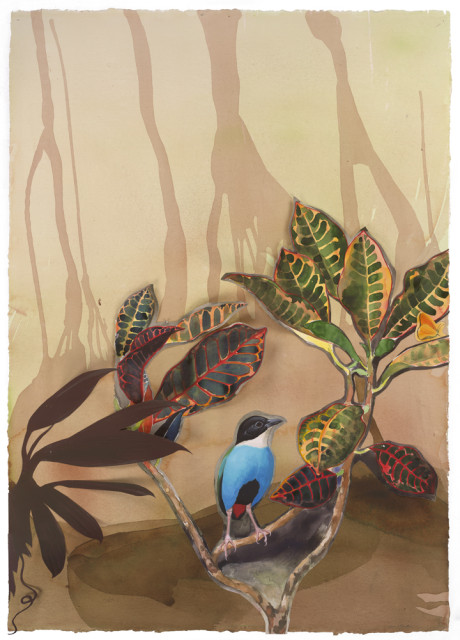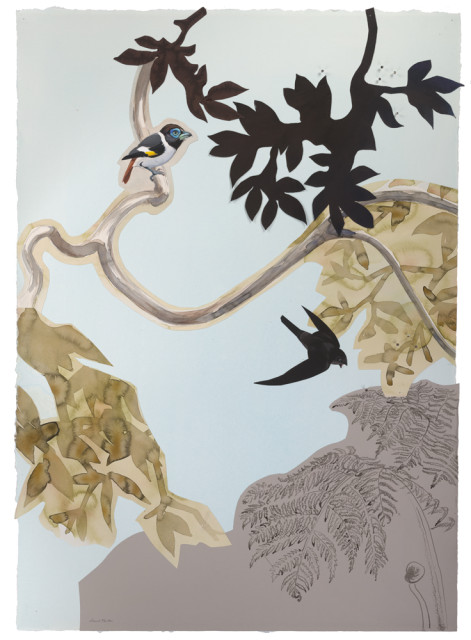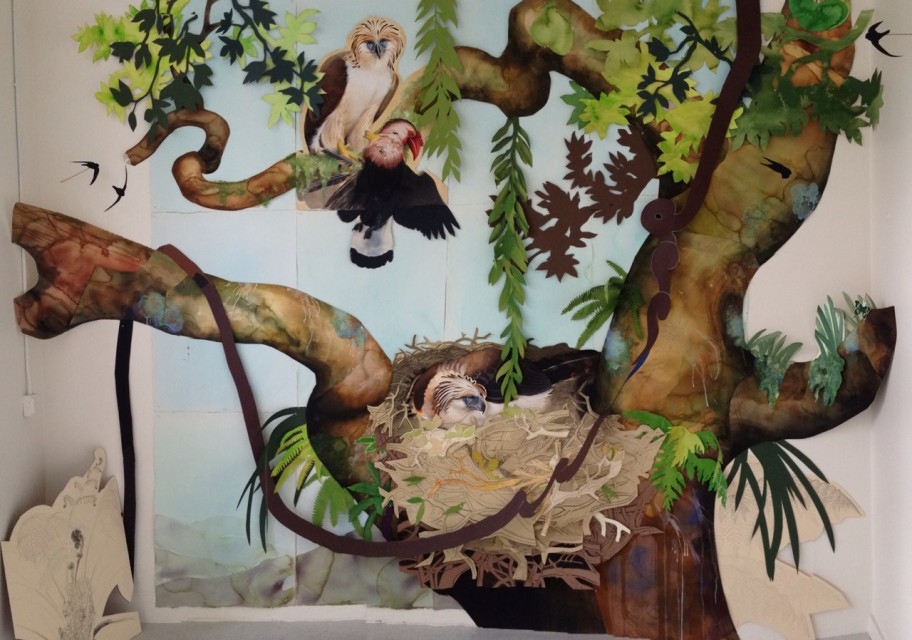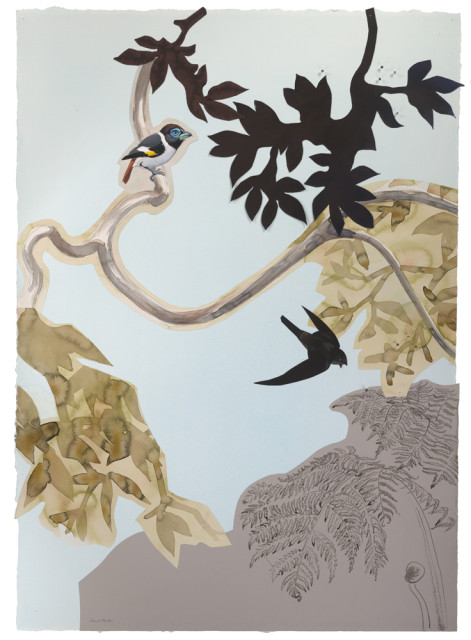Posted by Hungry Hyaena. Originally published here.

David Tomb
“Azure-breasted Pitta”
2012
Painted papers with mixed media and partially pasted and or completely pasted on paper with mixed media
42 x 30 inches
“Grand Birds of the Philippines,”┬ĀDavid Tomb‘s current solo show at┬ĀElectric Works, is deserving of a thoughtful review. Disappointingly, my writing time is limited this month and I can provide only a few observations.

David Tomb
“Mindanao Wattled Broadbill and Swift”
2012
Painted papers with mixed media and partially pasted and or completely pasted on paper with mixed media
42 x 30 inches
Birds have been the principal protagonists of David Tomb’s colorful watercolor and gouache paintings for the last six or seven years, but “Grand Birds of the Philippines” sees the artist pushing the construction of his works in exciting ways. Tomb builds the new pictures by pinning and pasting select fragments of various paintings and drawings onto larger paper grounds or directly onto the gallery walls. Viewers will spot numerous pin holes in the exhibited assemblages, evidence of earlier permutations; an┬Āorchid┬Āwas moved to a different branch, perhaps, or a┬Āswift‘s dark silouhette adjusted so that it chases another┬Āgnat. Here and there, a vine or┬Ābutterfly┬Āwing is left unfixed, protruding from the picture’s surface and lending a sculptural effect to the work.
Tomb’s approach, which calls to mind┬ĀJudy Pfaff‘s “sculptural painting,” is a surprisingly effective technique for a┬Āwildlife artist┬Ā(or, more accurately in the case of Tomb, a contemporary artist working at the fringe of that genre). The assemblages have a playful and provisional feel to them that is satisfyingly fresh, but the technique also heightens the sense of space and, in some of the works on display (most notably, the show’s┬Āpi├©ce de r├®sistance, “Great Philippine Eagles“) supplies a verisimilitude normally lacking in natural history art and illustration. As in the field, our eyes dart around the impressive image, and the 3-dimensional elements cause the lenses of┬Āour predatory eyes┬Āto subtly flex and relax, bringing different subjects or areas into focus. Tomb smartly exaggerates this effect by painting soft watercolor wash backgrounds that fall suddenly away where they come up against a pinned down hard edge.

David Tomb
“Great Philippine Eagles”
2012
Painted papers with mixed media pinned to wall surface
130 x 180 inches
Of the smaller works in “Grand Birds,” “Azure-breasted Pitta” and “Mindanao Wattled Broadbill┬Āand Swift” are the most compositionally engaging and successful, but this writer, a birdand┬Āsnake nut, also reserves a special place for Tomb’s exuberant “Mindanao Hornbill,┬ĀWagler’s Pit-Viper, andCollared Kingfisher.”
If David Tomb’s work appeals to you but, like me, you’re operating on a lean budget, you can support the artist’s conservation non-profit,┬ĀJeepney Projects, by purchasing benefit prints and, in a few weeks, note cards on the┬ĀJeepney website store. 100% of the print and card sales proceeds support bird conservation efforts in┬ĀMexico┬Āand thePhilippines.

David Tomb
“Mindanao Hornbill, Wagler’s Pit-Viper, and Collared Kingfisher”
2012
Painted papers with mixed media and partially pasted or completely pasted on paper with mixed media
42 x 30 inches
Image credits:┬Ācopyright, David Tomb, 2012; courtesy David Tomb and Electric Works